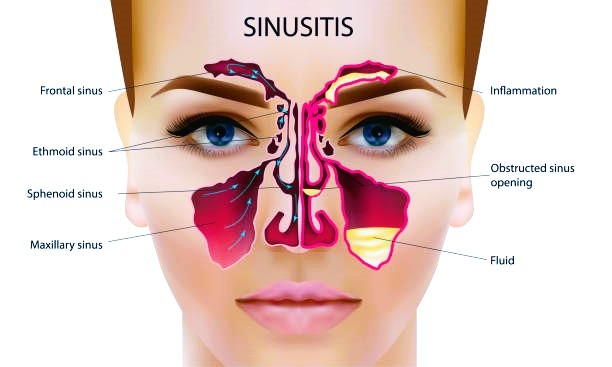Sinusitis: Causes, Symptoms, Treatment, and Precautions
Explore comprehensive insights on Sinusitis: causes, symptoms, treatment, and precautions. Learn how to manage sinusitis effectively. Dive in now!#sinusitis


Introduction
Sinusitis refers to the inflammation of the sinuses, which are hollow cavities located around the nose and eyes. This condition can cause discomfort and various symptoms that can significantly impact a person's quality of life. In this article, we will explore the causes, symptoms, treatment options, and precautions for sinusitis.
Causes of Sinusitis
Sinusitis can be caused by several factors, including:
Infections: Bacterial, viral, or fungal infections can lead to sinusitis. Common colds and allergies can also contribute to the development of this condition.
Nasal Polyps: These noncancerous growths in the nasal passages can obstruct the sinuses, leading to inflammation and sinusitis.
Deviated Septum: A deviated septum, which is a shift in the nasal cavity's wall, can block the sinuses and cause sinusitis.
Environmental Factors: Exposure to pollutants, irritants, and chemicals can irritate the nasal passages, leading to sinus inflammation.
Symptoms of Sinusitis
The symptoms of sinusitis can vary from person to person, but common signs include:
Facial pain and pressure: A dull, aching pain around the eyes, cheeks, and forehead.
Nasal congestion: Difficulty breathing through the nose due to blocked sinuses.
Runny nose: Thick, discolored mucus may drain from the nose or down the throat.
Headache: A persistent headache, often worsened by bending forward or lying down.
Loss of smell: A reduced ability to smell or taste.
Coughing: A cough that worsens at night due to postnasal drip.
Treatment Options
The treatment for sinusitis depends on the severity and underlying cause of the condition. Common treatment options include:
Home Remedies: Nasal irrigation with saline solution, using a humidifier, and applying warm compresses can help relieve symptoms.
Over-the-Counter Medications: Pain relievers, decongestants, and nasal sprays can provide temporary relief from symptoms.
Prescription Medications: In cases of bacterial sinusitis, antibiotics may be prescribed to treat the infection. Corticosteroids can help reduce inflammation.
Sinus Surgery: In severe cases or when other treatments fail, surgery may be necessary to remove obstructions or correct structural abnormalities.
Precautions
To prevent sinusitis or reduce its recurrence, consider the following precautions:
Maintain Good Hygiene: Wash your hands regularly and avoid touching your face to reduce the risk of infections.
Manage Allergies: Identify and avoid allergens that trigger sinusitis symptoms.
Stay Hydrated: Drinking plenty of fluids helps thin mucus and promotes sinus drainage.
Avoid Irritants: Minimize exposure to smoke, pollutants, and other irritants that can aggravate the sinuses.
Use a Humidifier: Keeping the air moist can help prevent dryness and irritation in the nasal passages.
Conclusion
Sinusitis can be a bothersome condition, but with proper understanding and management, its impact can be minimized. By recognizing the causes, identifying the symptoms, exploring treatment options, and taking necessary precautions, individuals can effectively alleviate sinusitis and improve their overall well-being. If symptoms persist or worsen, it is advisable to consult a healthcare professional for a proper diagnosis and personalized treatment plan.
